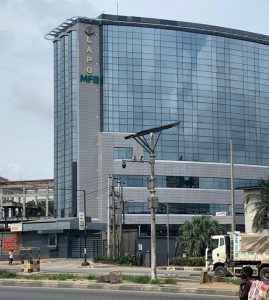
Bridge Diabetes Care Gaps Now
Diabetes, a chronic condition characterized by elevated blood glucose, often causes severe complications like heart disease, nerve damage, and vision loss. Yet, in Nigeria, access to timely diagnosis and treatment remains a significant challenge. Rising treatment costs, limited access to insulin, and a lack of public awareness are widening the gap in care.
Early intervention and affordable healthcare are crucial, but skyrocketing prices for essentials like glucometers and test strips make managing diabetes unsustainable for many. It’s imperative for policymakers to subsidize the cost of treatment and create incentives to retain health workers amid ongoing brain drain.
As the global community observes the 2024 World Diabetes Day with the theme, “Breaking barriers, bridging gaps,” it is critical for federal, state, and local governments, alongside health stakeholders and individuals, to step up efforts to address the gaps in the prevention, diagnosis, and management of diabetes.
Since the UN General Assembly designated November 14 as World Diabetes Day in 2007, the occasion has underscored a collective commitment to reducing diabetes risks and ensuring equitable, affordable, and comprehensive care for all diagnosed individuals. This aligns with the World Health Organization’s goal to halt the rise of diabetes and obesity by 2025.
Diabetes, a chronic metabolic disorder characterized by elevated blood glucose levels, has devastating consequences if left unmanaged. Health experts warn of severe complications, including damage to the heart, blood vessels, kidneys, eyes, and nerves. Despite global efforts, diabetes remains a growing epidemic. Over 422 million people worldwide live with the disease, and an estimated 1.5 million deaths annually are directly attributed to it, disproportionately affecting those in low- and middle-income countries.
In Nigeria, the situation is dire. According to the International Diabetes Federation, the country accounts for 37 percent of diabetes cases in Africa as of 2021. Local experts estimate that over 11 million Nigerians live with the condition, a staggering figure that places an enormous burden on individuals and the healthcare system. Symptoms of diabetes, which may include excessive thirst, frequent urination, unintended weight loss, and blurred vision, often go unnoticed for years, resulting in late diagnoses and complications. Untreated diabetes can lead to irreversible vision loss, nerve damage, and, in severe cases, amputation.
Access to affordable care, particularly insulin and diagnostic tools like glucometers and test strips, remains critical for survival. Yet, many Nigerians are unable to afford these necessities due to skyrocketing costs, a consequence of inflation and fluctuating foreign exchange rates. The broader healthcare system is equally challenged by inadequate infrastructure, a shortage of trained medical personnel, and insufficient public awareness of diabetes prevention and management.
Governments must prioritize healthcare reform to make diabetes care more accessible and affordable. Subsidizing essential treatments, investing in medical infrastructure, and creating incentives to retain healthcare professionals are vital steps in addressing this crisis. At the same time, private organizations, non-profits, and faith-based groups should intensify public education efforts to raise awareness about risk factors, including poor diet, sedentary lifestyles, and genetic predispositions.
Leveraging technology also presents an opportunity to improve outcomes. Digital tools that enable real-time monitoring and management of diabetes need to be made widely accessible, empowering individuals to take control of their health. Time for action is NOW!







